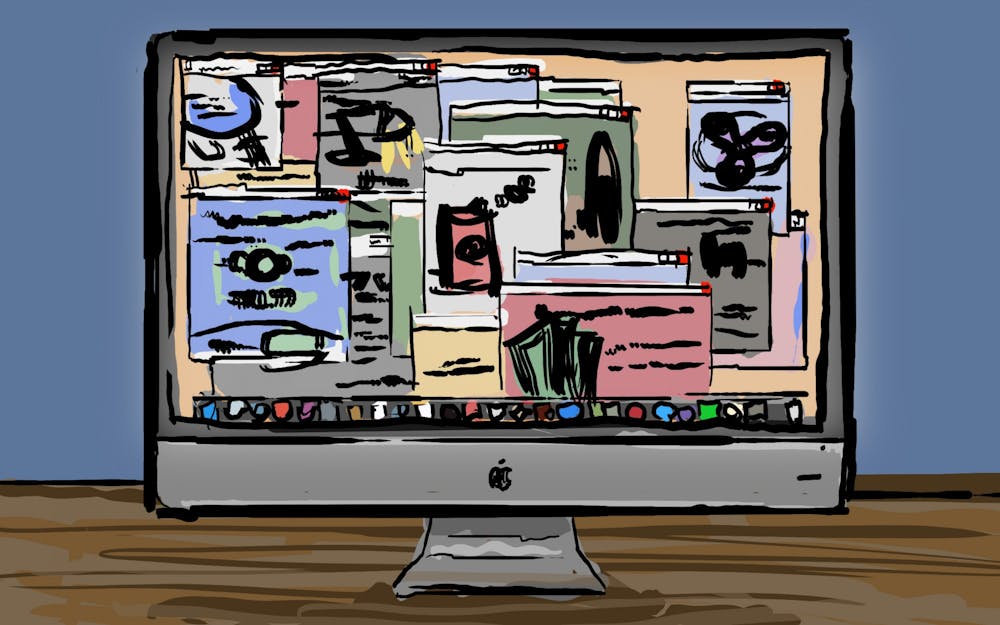To many, the idea of a dystopia is broad. It can be a city of neon lights, an arid wasteland or a planet scarred with burning ruins. While the possible responses to such a thought are limitless, there is a common thread that ties most, if not all, of them together: to the vast majority of people, dystopia is a condition of a fantastical future.
Dystopia isn't a facet of the future, nor is it a hypothetical. Rather, it is the reality of our present. According to the Merriam-Webster, a dystopia is defined as "an imagined world or society in which people lead wretched, dehumanized, fearful lives." If we disregard the "imagined" aspect of this definition, we are left with a set of parameters that are frighteningly accurate to our modern reality.
One of the most obvious examples of our dehumanization is through the endless assault of advertisement that we are subject to on a day-to-day basis. According to Aeron Davis, professor of political communication at Victoria University of Wellington and author of the book “Promotional Cultures,” "promotion has seeped into all areas of society at the organizational, social and individual levels."
Advertisements are everywhere. Drifting in the periphery on web pages, stuffed between the scenes of our favorite shows, sneaking in the backgrounds of our friends' Instagram posts. Adblockers and expensive streaming subscriptions may save us from some forms of advertisement, but beyond the realm of the Internet, we're held captive.
[Related: OPINION: Technological attachment is hurting our socially detached world]
Some gas pumps have begun requiring drivers to watch ads before filling their tank. According to Slate Magazine, an online news and culture source, we might, one day, see ads on the moon. Soon, we will be left unable to spend even a single moment liberated from the seemingly omnipresent influence of advertisement.
This inescapable capitalist influence reduces us from humans with control into helpless buyers of product. According to Medium, advertisements have shifted from their original goal of forming connections with people into a newfound goal of convincing people to become buyers.
While our society demands us to buy, buy, buy, actually doing so is nearly impossible as things become increasingly expensive. The price of healthcare is increasing, and lives are being ruined by medical debt. The price of living has gone up by 13% between 2021 and 2022. And the final nail in the coffin is that, for most Americans, wages haven't increased significantly enough to keep up with these increasingly exotic amenities.
So, what now? Do we let our eyes glaze and allow dystopia to take its course? Do we try to fight back? Do we even have the strength to care? Nobody knows. In the midst of all of this confusion, there is only one thing that we can hold as truth: dystopia, in all of its boring glory, is now.
Keegan Shoemaker (he/him) is a junior studying English.





![Dean_Reingold_ltr[52] (1).jpg](https://snworksceo.imgix.net/ids/25483b05-dabd-4378-92bd-70a32c2579f0.sized-1000x1000.jpg?ar=16%3A9&w=500&dpr=2&fit=crop&crop=faces)
